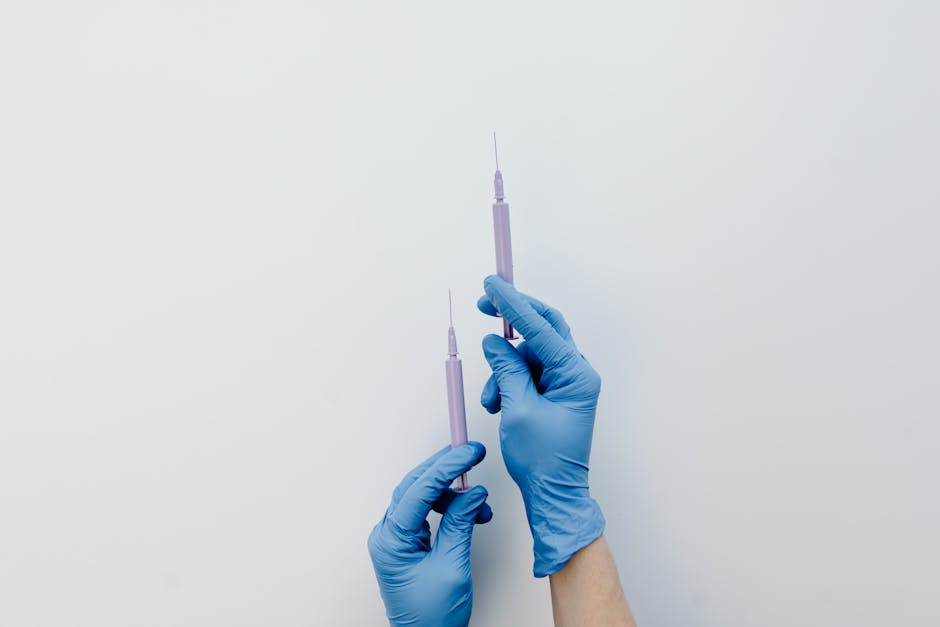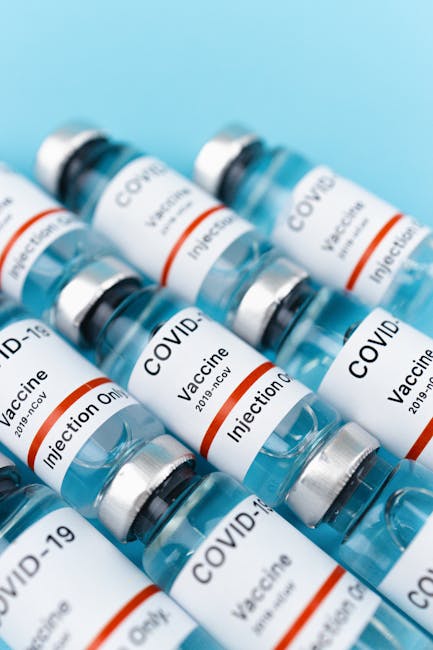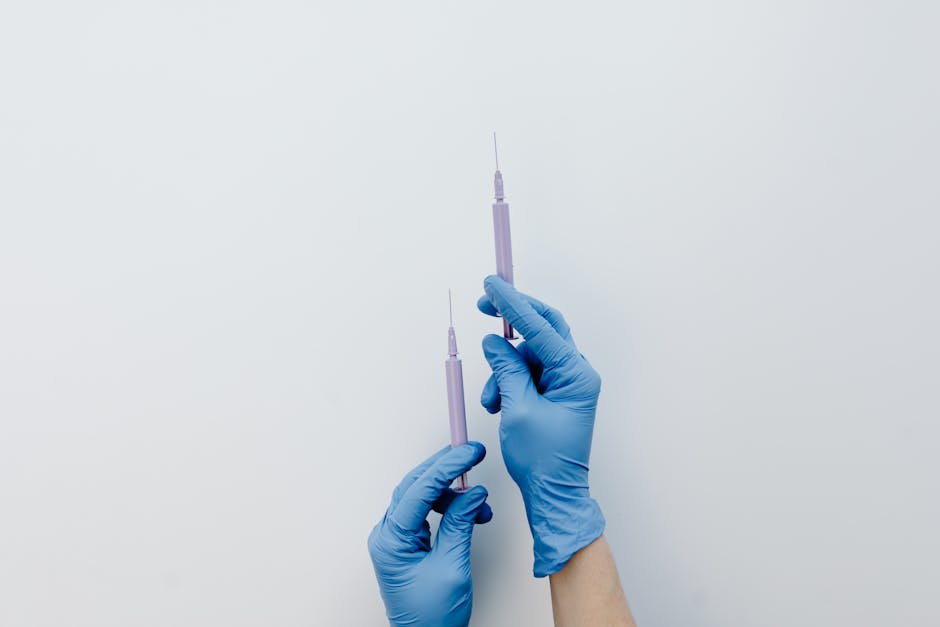FDA COVID-19 Vaccines: A Comprehensive Guide to Safety, Efficacy, and Authorization
Understanding the FDA’s Role in COVID-19 Vaccine Authorization
The Food and Drug Administration (FDA) plays a crucial role in protecting public health by ensuring the safety and effectiveness of medical products, including vaccines. Its rigorous process for authorizing COVID-19 vaccines involved multiple phases of clinical trials, data review, and ongoing monitoring. This process, while extensive, was expedited in response to the urgent public health threat posed by the COVID-19 pandemic, while maintaining high standards for safety and efficacy.

The Emergency Use Authorization (EUA) Process
Initially, COVID-19 vaccines were authorized under an Emergency Use Authorization (EUA). This allowed for the rapid deployment of vaccines while clinical trials were still ongoing. The EUA process, though faster than the standard licensing process, still required comprehensive data demonstrating the vaccine’s safety and effectiveness. The FDA carefully reviewed data on vaccine efficacy, adverse events, and manufacturing processes to determine whether the benefits outweighed the risks.

Transition to Full FDA Approval
Following the EUA, several COVID-19 vaccines received full FDA approval. This full approval signified a higher level of scrutiny and comprehensive review of long-term safety and efficacy data. The transition to full licensure provides increased confidence in the vaccines’ safety and effectiveness.
COVID-19 Vaccine Types and Their FDA Approval Status
Several COVID-19 vaccines have received FDA authorization or approval. Each vaccine uses a different technology, but all aim to elicit an immune response against the SARS-CoV-2 virus. Understanding the different types of vaccines is crucial to making informed decisions about vaccination.

mRNA Vaccines (Pfizer-BioNTech and Moderna)
mRNA vaccines, such as those developed by Pfizer-BioNTech and Moderna, utilize messenger RNA (mRNA) to instruct cells to produce a harmless piece of the virus, triggering an immune response. These vaccines have demonstrated high efficacy rates and have been widely used globally.
Viral Vector Vaccines (Johnson & Johnson/Janssen)
Viral vector vaccines, like the Johnson & Johnson/Janssen vaccine, use a modified adenovirus (a common cold virus) to deliver genetic material into cells, instructing them to produce a viral protein that triggers an immune response. This vaccine offers the convenience of a single-dose regimen.
Inactivated Virus Vaccines
Inactivated virus vaccines use a killed version of the virus to stimulate an immune response. While this technology has a long history of use, the development of inactivated COVID-19 vaccines took longer compared to mRNA or viral vector vaccines.
FDA’s Ongoing Monitoring and Safety Surveillance
The FDA’s commitment to vaccine safety doesn’t end with authorization or approval. The agency continues to monitor the safety and efficacy of COVID-19 vaccines through a robust post-market surveillance system. This involves collecting and analyzing data on adverse events, vaccine effectiveness, and other relevant information to identify any potential safety signals.
VAERS (Vaccine Adverse Event Reporting System)
The Vaccine Adverse Event Reporting System (VAERS) is a passive surveillance system that allows healthcare professionals and the public to report any suspected adverse events following vaccination. VAERS data is analyzed by the FDA and the Centers for Disease Control and Prevention (CDC) to detect patterns and potential safety concerns.
Clinical Trials and Post-Market Studies
The FDA also requires ongoing clinical trials and post-market studies to monitor the long-term safety and efficacy of COVID-19 vaccines. This ensures that any new safety issues or changes in vaccine effectiveness are promptly identified and addressed.
Addressing Common Concerns and Misinformation
Despite the rigorous scientific process and ongoing surveillance, misinformation about COVID-19 vaccines persists. It’s crucial to rely on credible sources for information about vaccine safety and efficacy.
Vaccine Safety
Extensive clinical trials have shown that COVID-19 vaccines are safe and effective for most individuals. While some side effects are common and usually mild (such as pain at the injection site, fever, or fatigue), serious side effects are rare. The benefits of getting vaccinated far outweigh the risks of developing severe COVID-19 disease.
Vaccine Efficacy
COVID-19 vaccines are highly effective at preventing severe disease, hospitalization, and death. While vaccine efficacy might vary depending on the specific vaccine and circulating variants, the vaccines remain a critical tool in combating the pandemic.
Addressing Vaccine Hesitancy
Vaccine hesitancy is a complex issue with various underlying factors. Open communication, accurate information, and addressing individual concerns are key to overcoming vaccine hesitancy. Consulting with healthcare professionals is vital to making informed decisions about vaccination.
The Future of COVID-19 Vaccines
As the virus continues to evolve, the FDA is working on adapting the vaccines to new variants. This includes updated booster shots and potential new vaccine formulations. The FDA’s commitment to ongoing research and surveillance is crucial in ensuring that the public has access to the safest and most effective COVID-19 vaccines.
Variant-Specific Vaccines
Emerging variants of the SARS-CoV-2 virus pose ongoing challenges. The FDA is actively reviewing data on variant-specific vaccines to determine their effectiveness and safety.
Long-Term Safety Monitoring
The FDA’s commitment to long-term safety monitoring extends beyond the initial authorization and approval periods. Continued surveillance is critical to identify and address any rare or delayed adverse events.
Conclusion
The FDA’s role in authorizing and regulating COVID-19 vaccines has been paramount in protecting public health. Through rigorous scientific processes, ongoing surveillance, and transparency, the FDA has ensured that safe and effective vaccines are available to the public. While challenges remain, the ongoing commitment to research, development, and monitoring provides confidence in the long-term effectiveness and safety of COVID-19 vaccination strategies.







